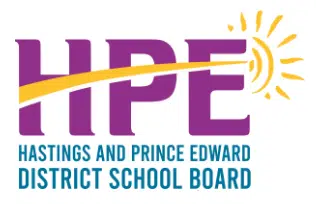A large error in reporting has resulted in a sizeable reduction in the grant allocations for the Hastings Prince Edward District School Board.
At Monday’s Committee of the Whole meeting the committee heard a report from Business Services Superintendent Nick Pfeiffer on the reduction.
According to Pfeiffer, there has been a years long error in the reporting to the Ministry of Education on the size of the school in terms of students.
The error arose when, in 2017-18, the school added 7th and 8th grade classes and the next year became a full kindergarten to grade 12 school.
The grant funding is calculated by school boards reporting the “on the ground” capacity numbers for each school, which means the number of students for which the school was designed to house.
The error came when the numbers being reported to the ministry after the school added grades seven and eight were duplicated.
Instead of separating the grade seven and eight students from the secondary students, the number for secondary students wasn’t changed and the number for elementary students was added on top.
What resulted was four years of inflated reporting to the ministry that in turn caused the ministry to overfund the school board.
Now the board is facing a $1.3 million reduction in grant allocations for the 2021-22 school year.
The issue now is that all boards must operate with no more than a 1% deficit and the reduction in grant allocation along with the previously budgeted deficit pushes the school board over that threshold.
In order to get back within the 1% threshold and to avoid entering a deficit recovery plan, there must be a $59,000 reduction in the planned $16.5 million building operation and maintenance expenses, according to the staff report presented to the committee.
The report says that will mean a slight decrease in planned building maintenance, but will not affect staffing or building operations. The board will also look at other savings opportunities where it is possible as well.
When asked about culpability in the error that led to the reduction, Pfeiffer said that it falls on him.
In order to ensure that this doesn’t happen again, said Pfeiffer, the board is conducting an internal review of the process by which the data is submitted to the ministry. On top of the internal review, they are calling on a third party auditor out of Ottawa to conduct an audit on the process as well.
Part of the impact of this error is that the money to account for the loss of $1.3 million will come from the surplus, which was projected at around $10 million. After the deficit the surplus is projected at approximately $6.9 million.
Now, said Pfeiffer, the board will wait to see what the ministry does with regards to recoup the past years of overpayment.






